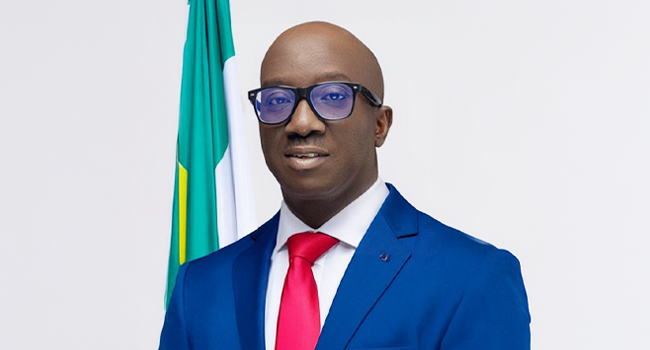—By Our Correspondent.
In the wake of mounting insecurity and deteriorating infrastructure, the people of Akoko Edo have risen in a unified cry for urgent intervention. This demand culminated in an emergency stakeholders’ town hall meeting which held yesterday at the Multi-purpose Hall, Igarra.
The high-powered summit drew together traditional rulers, security operatives, the clergy, political representatives, and concerned citizens, underscoring the weight of the issues at hand—namely, insecurity and the deplorable condition of roads across the region.
The emergency meeting was convened in response to a protest led by Paul Lawani Alabi, a known community agitator, who has been described metaphorically by locals as a “dog-headed man”—a term meant to capture his unrelenting and bold approach to activism. The protest gave voice to widespread frustration over the state of roads that have become hotbeds for kidnappings and criminal activity.
The protest saw participation from a cross section of society—youths, commercial motorcyclists, motorists, and traders—chanting in unity against the systemic neglect. “Lamentations upon lamentations must not be the tool to fighting this menace that has befallen us,” said one of the impassioned protesters. “The pain and agony we can no longer endure; we have come not to beg, but to ask for our rights as indigenes of this great region.”
The gravity of the protest prompted swift attention from state authorities. Honourable Barr. Donald Ojemeh Okogbe, the member representing Akoko Edo Constituency 1, moved promptly to engage with the people. He was present at the town hall meeting alongside the region’s revered traditional rulers, including the Ima of Somorika, the Olososo of Ososo, the Oloja of Ojah, and a representative of the Otaru of Igarra. Also, in attendance were Akoko Edo Anglican Diocese Bishop, His Lordship Ebenezer Saiki, other clergymen, security agencies and other prominent stakeholders.
Addressing the gathering, Hon. Okogbe emphasized that the meeting was “apolitical and not the usual arena to applaud public office holders.” He declared the purpose was to “draw everyone back to the table to contribute their quota in arresting and taming the lingering situation that has bedeviled our local government.”
He further announced plans for a broader summit slated for July 21, which would include federal legislators, religious leaders, and retired security personnel to deliberate more comprehensively on actionable solutions.
Also speaking the Ima of Somorika referenced a recent meeting held in Etsako with the state’s executive governor, where traditional rulers were advised to refrain from engaging with herders, with a stern warning that perpetrators of such collaborations would face expulsion and prosecution.
The Olososo of Ososo added a spiritual and moral dimension to the conversation, urging citizens to embrace unity and love as “tools for overcoming the battles threatening to destroy the soul of our region.”
Despite the passion in the room, some security-related questions from attendees went unanswered, not out of negligence, but in what organizers later described as “strategic silence.” According to a source, “Security matters cannot be discussed in the open if we are to win this war.”

